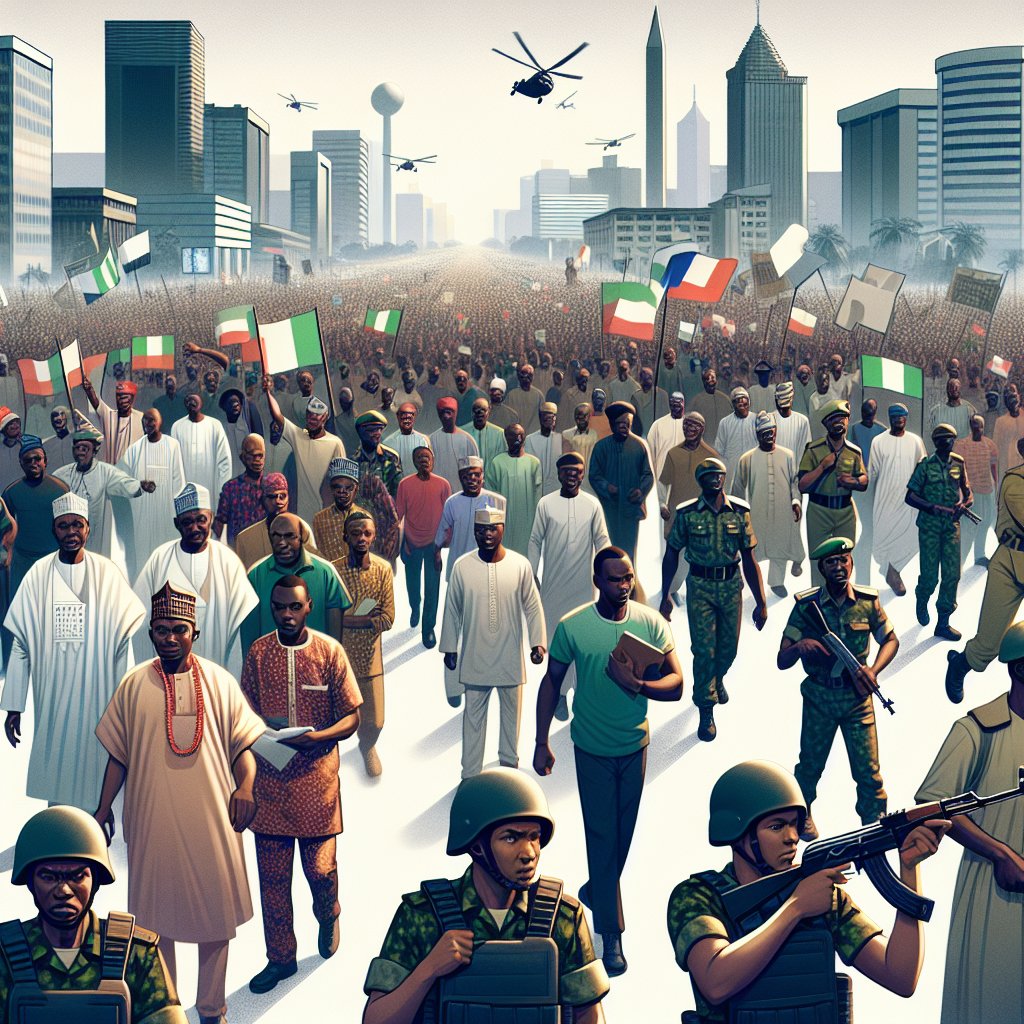Image created by AI
Rising Tensions as Russian Flags Appear in Nigerian Protests Amidst Economic Crisis
Amidst the surging cost-of-living crisis that has gripped Nigeria, a new element of concern has emerged for the country's government—the unexpected appearance of Russian flags in the hands of protesters. The demonstrations, which began last Thursday, represent the West African nation's outcry against a generation-high inflation and perceived governmental mismanagement and corruption.
The presence of Russian flags during the protests has drawn severe criticism from Nigerian authorities, who have declared these actions as treasonous and contrary to the nation's sovereignty. The Russian embassy in Nigeria has categorically refuted claims of its involvement, emphasizing that individual choices of protesters to carry Russian flags do not represent any official stance or policy from the Russian government.
The economic strife driving the civil unrest has pushed Nigeria's inflation to a staggering 28-year high, with government economic strategies leading to a historically weak local currency. Despite President Bola Tinubu's promises to address these acrimonious concerns, he has yet to present a concrete plan, according to analysis from Lagos-based SBM Intelligence.
As the protests evolved, at least 13 fatalities have been reported—attributed to a rooftop crackdown by the nation's security forces, which have been accused of employing excessive force against demonstrators. In response to the escalating violence and disruptions, including incidents of looting, a curfew was instituted in the northern Kaduna state—the sixth to do so since the inception of the protests.
In this fragile context, Nigerian military chief Christopher Musa has issued a stern warning—waving Russian flags will be regarded as treason. This warning comes amidst growing pro-Russian sentiments within the region, as countries like Niger have welcomed Russian alliances, particularly in military partnerships, following disenchantment with Western ties.
The Nigerian protests have caught regional and international attention due to the country's strategic position—the current chair of West Africa's regional bloc. President Tinubu has issued a cautionary note against any unconstitutional maneuvering of the protests, possibly alluding to external influences seeking to leverage the country's unrest.
Adding to the complexity of the situation, Nigeria's secret service has arrested tailors in Kano state, accused of manufacturing Russian flags being disseminated among protesters, signaling a deeper investigation into the origins and implications of this pro-Russian symbolism in Nigerian protests.
The unfolding events in Nigeria are an emblem of a nation grappling with economic hardships while straddling geopolitical zones of influence. The government's acknowledgment of the crisis and need for resolution must also navigate the delicate international relations being spotlighted by the protests.










